 |
| Maguey Plants |
We arranged a trip to San Miguel de Allende for a photo workshop with Michael Amici. I met Michael in 2016 for a Santa Fe Workshop class during Semana Santa (Holy Week). Although San Miguel de Allende (SMA) has 48 festivals a year, the reverence and flamboyance of Holy Week is not to be missed. This time, I let Dan come along since we were to be Michael's only students.
SMA hasn't had their typically large Holy Week celebrations for the two years of the pandemic. Despite there being no end to the pandemic, the city went ahead with its festivities. Children and many, many adults were masked when in public.
Our first outing with Michael was to a Maguey Farm owned by Doña Beatrix in the small hill town of Lagunilla. Doña Beatrix harvests the agua miel (honey water) from the magueys. At room temperature, it doesn't take long for the agua miel to begin fermenting. The result is a mildly alcoholic drink (3%) called pulque. Arriving at Lagunilla the first resident we met was carrying two liters of just purchased pulque. The maguey is a member of the agave family.
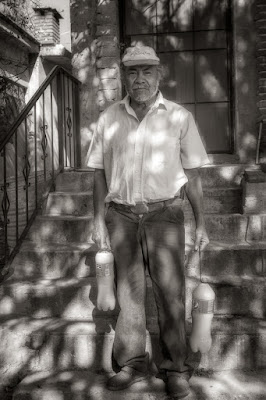 |
| A Satisfied Pulque Customer |
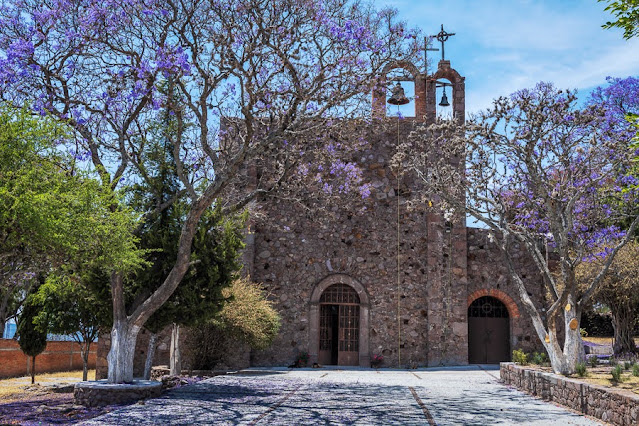 |
| The Church in Lagunilla |
While Doña Beatrix prepared our lunch, we photographed the magueys and learned more about the process.
 |
| The Quiote (blooming stalk) of the Maguey |
The lifespan of a maguey is about 35 years. It is only at the end of its lifespan that it blooms.
 |
| A mature maguey with the quiote removed |
After removing the quiote (before it blooms), a well is made in the "pina" center of the maguey. This well collects all the agua miel the maguey is producing that would have gone to the quiote. At first, there are just a few milliliters but eventually it produces liters of agua miel. The agua miel is harvested daily until the maguey dies. Between daily harvests, the pina's well is covered with fabric and a rock to keep insects out.
Maguey leaves were once harvested for their strong thread fiber used for hammocks, fishing nets, carpets. That use has been replaced by synthetic products. The fibrous threads are now sometimes used to embroider clothing and leather products.
After our photography session, we tasted the fresh, cold agua miel and pulque. The agua miel is sweet and the translation, honey water, describes it perfectly. Agua miel is said to be very good for digestion. Pulque, on the other hand, is an acquired taste. When it ferments, it becomes milky with a yeasty flavor; it seemed a little sour to me. To get pulque, the agua miel is fermented naturally in a cask.
Making mezcal is a completely different process involving harvesting the pina which is mashed to yield its liquid and cooked over a wood fire to get that nice smokiness.
After a huge lunch of tortillas, molé, rice, salsas, sopas, tender chicken followed by Café de Olla and Doña Beatrix’ delicious pineapple pie we drove down the hill to the town of Jalpa. The streets of Jalpa were still decorated with palm fronds from Palm Sunday.
 |
| Jalpa's Church with Crosses ready for Good Friday |
|
The ruins behind Jalpa's Church look like they once might have been a monastery or maybe lodging for traveling pilgrims.
Ruins Near Jalpa's Church
Before returning to SMA, Michael took us to Atotonilco. The Mexican Folk Baroque interior of the church is described as the "Sistine Chapel of Mexico." We did go inside, but due to the amount of people visiting during Semana Santa, only the main chapel was open to visitors.
 |
| Main Chapel at Atotonilco |
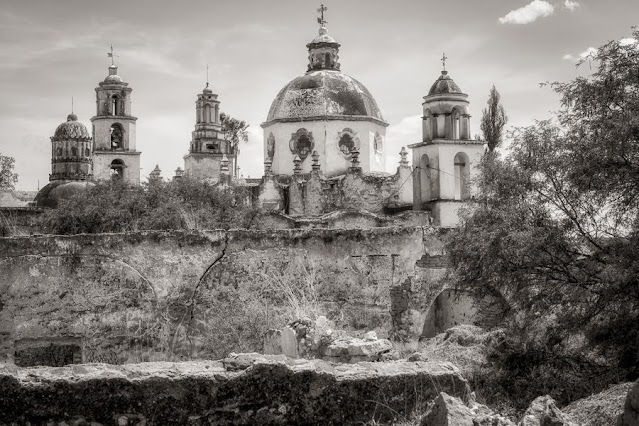 |
| Church at Atotonilco Viewed from Adjacent Ruins |
Because this week was dedicated to photographic improvement, on this post I am experimenting with a toned, black and white palette I rarely use.
Tomorrow, Holy Week festivities begin in SMA.





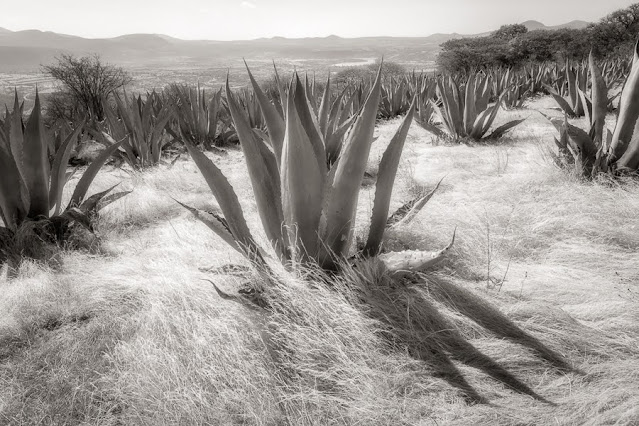



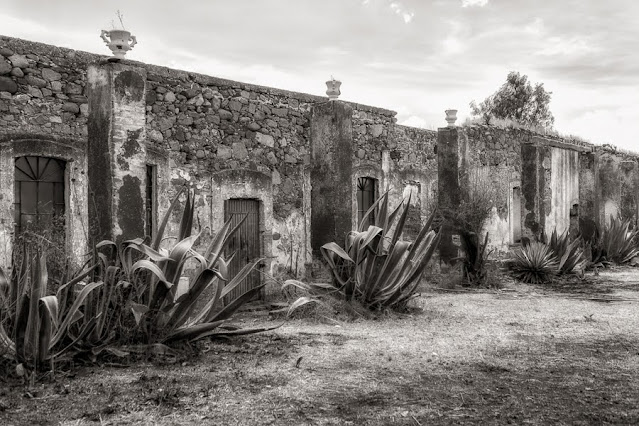


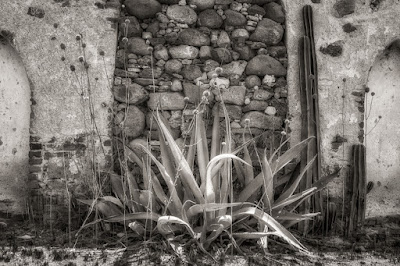




Comments
Post a Comment